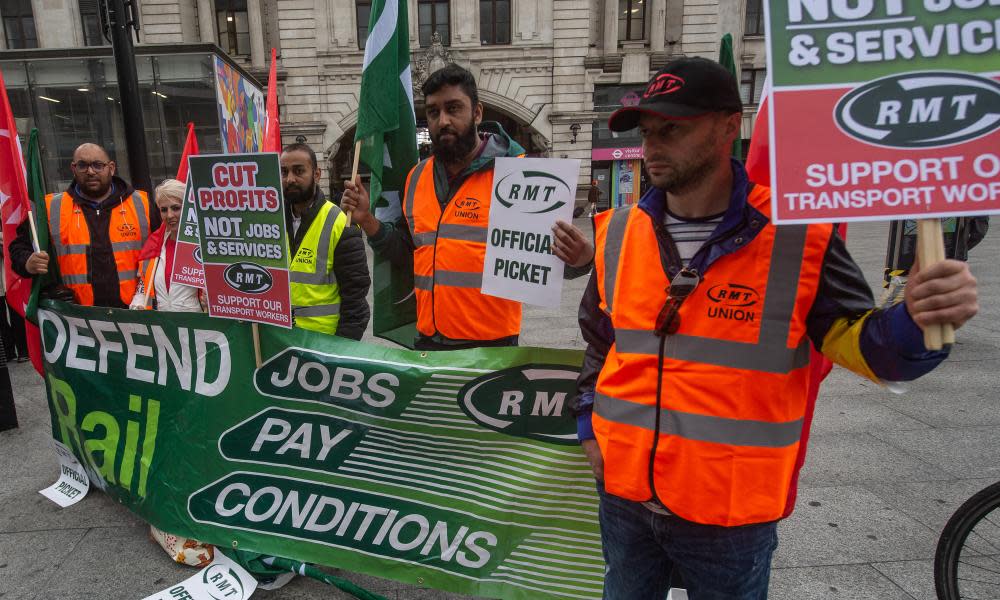Rail strikes show Tories have moved on since promises to defend workers’ rights

When P&O Ferries bypassed unions and replaced 800 seafarers with agency workers in March, the prime minister, Boris Johnson, said his government would “defend the rights of British workers”, and the transport secretary, Grant Shapps, brought in new rules that would make sure workers “are not undercut by employers”, he said. Three months later, the tune is very different.
New laws announced by the government on Thursday aim to make it easier for employers to use agency workers to break strikes. The draft legislation also proposes quadrupling penalties for unions for carrying out unlawful strikes – from £250,000 to £1m for the largest unions.
Pitched by the government as a direct response to the rail strikes taking place across the country this week, the measures are above all a piece of political theatre, positioning ministers against those the business secretary, Kwasi Kwarteng, accuses of “holding the country to ransom”. But are they a genuine threat to the right to strike?
Related: Second day of rail strikes start after talks collapse in acrimony
In an unusually partisan press release, the department for business, energy and industrial strategy said the changes would “minimise the negative and unfair impact of strikes on the British public”, suggesting that it does not hold dear the right to strike, even if it is codified on its website. Yet even in those terms there are several reasons why the changes might not work.
Firstly, higher penalties are something of a red herring, because illegal strikes are already vanishingly rare given existing penalties.
Secondly, unemployment in the UK remains at a near 40-year low, at 3.8%. There were 1.7m adverts for unfilled jobs in the UK in early June, according to the Recruitment and Employment Confederation (REC), a lobby group for recruiters. Large employers are already complaining of skills shortages so finding a stock of temporary workers able to step in at short notice will be very hard – and probably very costly. (One option under previous Conservative governments might have been to bring in workers from the EU. This is probably not what Johnson’s government is planning.)
In the longer term, the changes may not even prevent a repeat of the rail strikes. It is unclear how pleased voters would be with highly trained public safety roles (like driving 400-tonne trains at 120mph) being undertaken by temporary workers. Higher-qualified workers will almost always have some form of leverage over employers (albeit with the threat of automation always lurking).
But in the long term, the proposed changes will tilt the balance of power away from workers and in favour of employers. The REC boss, Neil Carberry, argued that it could force agency staff into the impossible situation of being told to cross picket lines. It is at the lower-trained, worse-paid end of the labour market, in warehouses and at transport depots, for example, that workers are most likely to be pitched against workers.

 Yahoo News
Yahoo News 
